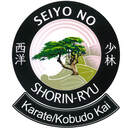|
Did you know that there is some common etiquette that everyone should know when visiting a martial arts school? Whether you are brand new to the martial arts or are a seasoned practitioner there are some general rules that you should follow when visiting any martial arts school, dojo, kwoon or academy. Be aware there are different rules depending on your intention for visiting the class. For example, are you visiting just to watch or are your hoping to train with them for an evening? If you are just visiting to watch a class, the rules are pretty simple: 1. Call the head instructor ahead of time to ask permission to watch a class. Be sure to secure what time the class will be held as well. Be on time. This is important as some instructors have advanced classes that they do not allow the public to watch. 2. Never step on the mats/training floor with your shoes on! Immediately remove your shoes at the door. This alone will impress the instructor. 3. Be polite. Don't interrupt class. Let the instructor come to you. Don't question their teaching methods. Keep your opinions to yourself and just watch politely. If you have questions pertaining to taking a class, wait for an appropriate time when the instructor or assistants aren't busy. 4. Thank them for allowing you to watch their class. If you are seeking to train at a martial arts school for a class or two, the rules are a little more detailed. First of all, it is assumed that you already are a martial artist with a uniform and some training under your belt. If this doesn't apply to you, then its better to watch a class instead. Here's what we tell our Branson Karate students when they visit another dojo. 1. Always ask permission. You should ask permission from your home instructor first. It's polite to do so. Plus, it could be embarrassing for you if the head instructor contacts your home instructor or another student says they saw you at another school, for example. Once your home instructor grants you permission, then you must contact the school you are hoping to visit and ask permission to train with them. They may ask your rank to confirm the appropriate class for you to train in. 2. No matter your rank, offer to pay for the class. Don't expect a free visit. 3. Confirm that the uniform you have is appropriate to wear to their class. For example, some martial arts schools only allow white traditional uniforms. You should be able to wear your current belt rank from your home school. However, some traditional karate dojos prefer that visitors wear a white belt. Drop the ego and strap on a white belt if necessary. 4. Show respect for all those in the dojo, especially the instructor. Use polite manners, remove your shoes at the door and bow when expected. 5. Don't try to prove anything. If you are about to start a sentence with, "at my school we..." then you are NOT being respectful and are trying to prove yourself. Bite your tongue. The adage, "When in Rome, do as the Romans do" applies to you in this situation. 6. Have a "beginner's mind" seeking to learn something from your visit. You can always learn something new from others if you are open to doing so! 7. Never request to spar. If pressured to spar by the school you are visiting, keep it playful. Tell them you are here to learn something new, not to prove anything. 8. Have fun and thank everyone for allowing you to train with them! Visiting other martial arts schools is a wonderful way to grow the martial arts community and good will. At Branson Karate we enjoy having visiting students to watch or train with us. However we do have a vetting process that starts with a phone call. If the student is seeking to train with us and shows a respectful attitude, then great! They are welcome to train with us. If they are there to prove something, such as how well they can fight, then we will simply show them the door. "Be open minded. You will find that doors open for you. A closed mind that seeks to prove something will find that doors slam shut. There is always more to learn, if you are willing and leave your ego at the door." ~ Vashon Borich-Leach
2 Comments
Kids are not naturally self-motivated. When your child’s mindset is not in the right place, even the most fun activities can be a struggle to get to. With that said, here are some strategies to help you work around lack of motivation when trying to get your kid to class.
1. Be attentive to what your child is doing at the moment he/she is supposed to get ready for class. If he/ she is playing or having fun with a friend, then be ready for a battle. With that said, have your child participate in a chore or task that’s not as much fun around 10 to 15-minutes prior to getting ready for class. 2. Be attentive to your own projection of emotions as you get your child ready for class. If you are stressed, rushed, or aggravated in any way, this will project the same emotions on your child. With that said, be sure to project positive and upbeat energy as you are getting your child ready for class. 3. Be attentive to how you respond to your child’s overall performance after class. If you are expressing too much emphasis on what he/ she did wrong versus right, then those negative feelings will carry over. With that said, be sure to limit criticism and focus more on productive conversations after class. 4. Be intentional with your goals by communicating with your child’s instructors. The goal is to foster motivation. Let the instructors know about your struggles so that they can be mindful to motivate your child before, during, and after class. It takes a village, so don’t be afraid to ask for support! 5. Prompt motivation by rewarding your child. Remember that children’s brains are still growing, and most of their development comes from positive stimulation and experiences. With that said, pre-frame the proper behavior that you would like to see when going to class, and then set an attainable number of classes he/ she must attend with this behavior, along with a reward for doing so. For example: attend the next 3 classes with the proper behavior and we will grab ice cream on the way home. These tips are not rocket science but are often overlooked. As parents, we get caught up in the daily grind, so we sometimes forget that situations like this require attentive and intentional parenting. I hope this article sheds some positive light on how to help your child get ready for class. Good luck! Click here for a downloadable and printable document of this article. 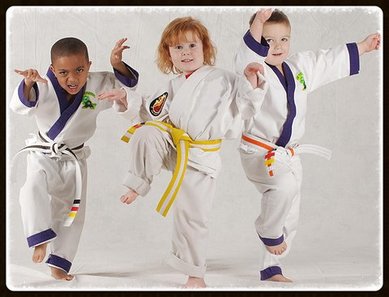 Everyone knows that four and five year olds have a lot of energy. Unfortunately, there are few organizations that offer athletic programs for that age group. With that in mind, on May 3rd Branson Karate will begin offering a Lil' Dragons Karate Program twice a week. This will be a way for preschool -aged children to be introduced to the martial arts in a fun and positive environment. The class will meet each Tuesday and Thursday at 5:15 p.m., you can learn more on this page: www.bransonkarate.org/dragons Children will be taught safety skills such as First Aid, Fire Safety, and Stranger Awareness. They will also be learning life skills such as cooperation, memory, and balance. In addition, they will be building on their social skills to improve their relationship among their peers so they can cultivate trust and respect for adults, children, and themselves.These skills will help them enter society with a more confident, enthusiastic outlook. These are the same skills that help children be better students at school, better listeners at home and more ambitious towards the future. The Lil' Dragons program is also a great way to develop the ‘pre-skills’ necessary for a child to function and thrive in social settings. Lil' Dragons will also help prepare your child for our Youth Karate Program. In the Little Dragon classes, children are exposed to positive social interaction. They will learn how to work with others and follow directions from their instructors, Vashon Borich and Ron Leach. Mrs. Borich and Dr. Leach have a combined experience of over 60 years in the Martial Arts and in working with young children. You can count on this husband and wife duo to be positive role models for your child's first experience in the martial arts. Not only is this program great for kids but it is a lot of fun too! Balls, balloons, hula hoops, and more are used to create a fun learning experience. The instructors will also use fun star charts, patches, belt stickers and stripes to help cheer your little martial artist on. If you have a pre-schooler or know of someone who does, be sure to have them visit www.bransonkarate.com for Lil' Dragons registration details.  New Class Forming on May 3, 2016! Cost: $75 per month (sign up for two months minimum and receive free uniform and white belt - a $40 value!) Instructors: Vashon Borich, Sensei & Ron Leach, Hanshi Class Time: Tuesdays & Thursdays at 5:15 p.m. Register: www.bransonkarate.org/dragons In today's digital age we are fortunate as we can share information quickly to anyone that has access to a device with an internet connection. I have a personal goal to make karate training more accessible and easier to learn for anyone. In pursuing this goal, I've helped organize a curriculum database Web site that contains promotional checklists, detailed technique description sheets and kata outlines for each rank up to 1st Kyu (brown belt with a black stripe.) In working with other members of the Seiyo No Shorin-Ryu organization we have also started adding multimedia files such as videos and photos to rank sections. We believe this will be a tremendous training resource for all our members.
To access this new database, you will be required to register as a Seiyo No Shorin Ryu Karate & Kobudo Kai member. If you already have an up-to-date annual Seiyo No Shorin-Ryu Karate membership, you will be credited the membership registration fee. Colored belts (kyus) are $25/yr. Black belts (dans) are $50/yr. As this site is brand new, it is currently in BETA status. This means, that it's a work in progress. We appreciate any helpful suggestions or tracking of any errors that you may find. Please click on the "contact" page to send that feedback. Let's get started! Visit this link to access the new Web site: http://snsr.wildapricot.org/ NOTE: This is the BETA site address provided by our Web site database hosting service. The official Web site address will be http://www.seiyonoshorinryu.org and will be activated by June 1, 2013. So, don't bookmark the "wildapricot" address. The site will constantly be growing and improving as we add more photos, videos, helpful documents and tools. 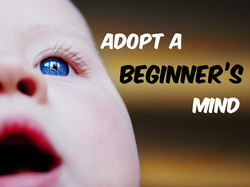 I am a beginner. Sure, I've been involved in some sort of Martial Art since I was 8 years old and I'm 38 now. But, in my mind I'm still a beginner. Beginner's don't have to be cool or claim to know everything. Beginner's don't get uptight when they make a mistake. Beginner's are always learning. They seem to have more fun, too. They aren't overly critical of themselves. They don't classify themselves as "good" or "bad." They are simply a beginner... someone who is in the present and there to learn. Beginner's love what they do regardless of how well they do it. Or, should I say, beginner's love unconditionally. This concept of being a beginner is really a mindset, a "beginner's mind." By adopting a beginner's mind, it opens you to learning without ego getting in the way. So often, as adults, we tell ourselves, "I know this! I should have done better! Anything I do should be done well or not done at all. Or, this is how I've always done it." A beginner's mind means temporarily throwing out all of your opinions, beliefs, logic and reason just for the sake of learning. It is okay to say, "I don't know." For this is the first step in learning something new. In the martial arts, an "I don't know" mind is the wisdom of the warrior. We don't allow ourselves to say "I don't know" often enough. This is because we always know, or we always think we know. Most of the time when we think we know, we don't really know at all. All we know are our past impressions of the situation that is happening now, the conclusions we came to in the past or judgments about similar events or circumstances that happened to us before. "I Don’t know" means keeping an open mind and responding according to circumstances, not according to how we assume things will be. Being a beginner means letting go of being an expert. We are all experts in something. We may think we are experts in our job, in raising children, in cooking a certain meal or in how we communicate with others. It’s difficult to let go of being an expert. Doing so means confessing that we really don't know anything. What we know belongs to the past. But this moment is new and offers its unique challenges. If I let go of being an expert, I can listen to others with an open mind. Then I can find that even a beginner has something to teach me. Beginners aren't afraid to fail. When we were children we were always starting something new. Then, as we go through our twenties, thirties, and further, we become more hesitant about being a beginner again. Why? Maybe it's because we don’t want to look silly when we fail. Having a Beginner's mind means it's okay to fall down, it's okay to fail and it's okay to laugh at ourselves when we make mistakes. Tell yourself (and others if they are watching), "I'm a beginner!" Then get up, dust yourself off, smile and immerse yourself in learning something new. A beginner's mind can transform the way one experiences life. It opens your mind to new possibilities and makes life fun. In the next section, I list some thoughts to meditate on to help maintain a beginner's mind. |
AuthorVashon Borich-Leach, Sensei teaches traditional karate and tai chi in Branson, Missouri. She considers herself a life-time student of the arts. Her blog is an open journal of lessons learned in the martial arts. If you are a martial artist and would like to contribute to her blog please contact her. Archives
May 2023
Categories
All
©2012 Branson Karate & Kobudo™
|
©2010-2024 Vashon Enterprises LLC, DBA Branson Karate™
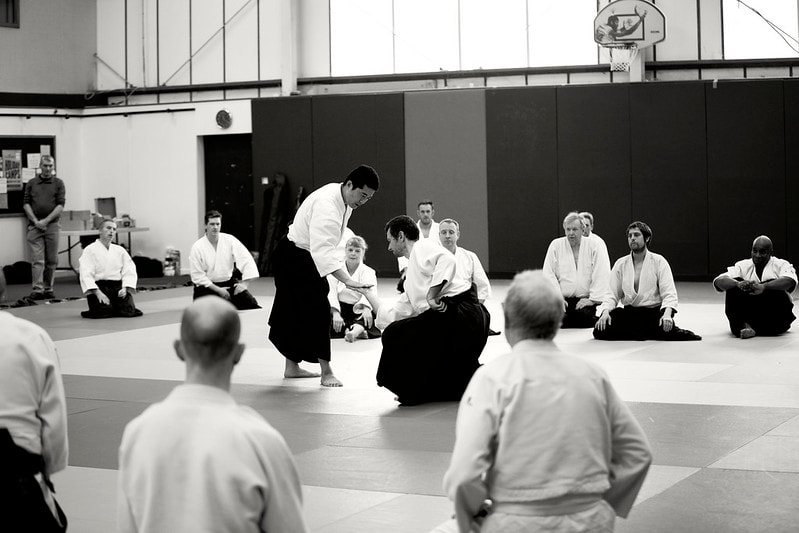
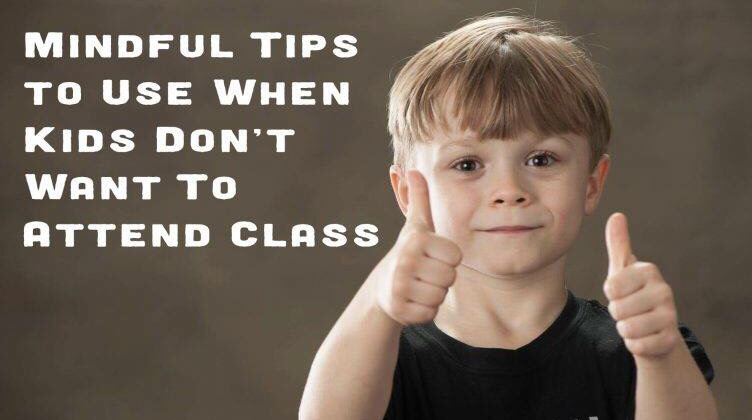
 RSS Feed
RSS Feed
